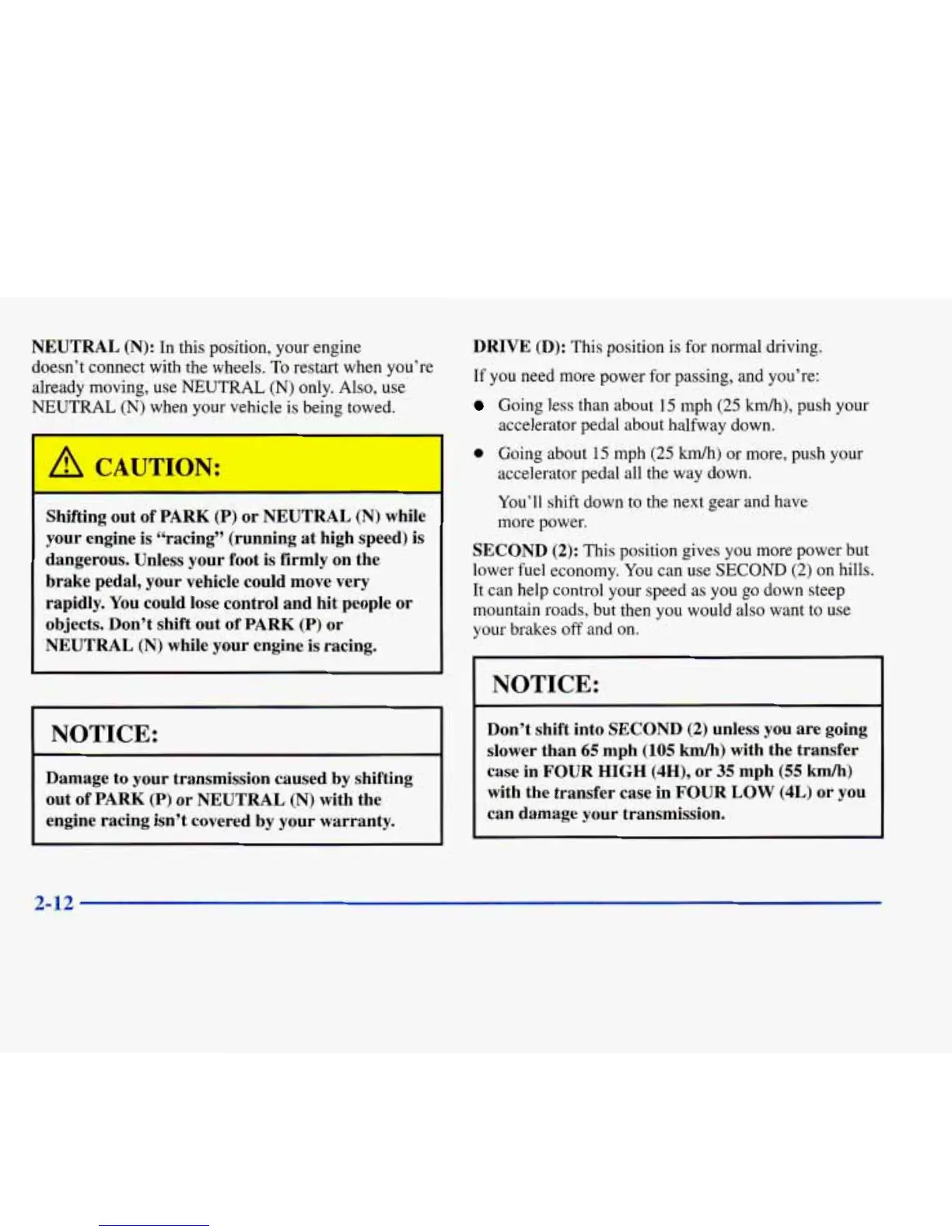NEUTRAL (N):
In this position, your engine
doesn’t connect with the wheels.
To
restart when you’re
already moving, use
NEUTRAL
(N)
only.
Also,
use
NEUTRAL
(N)
when your vehicle is being towed.
I
Shifting out of
PARK
(P)
or
NEUTRAL (N)
while
your engine is “racing” (running
at
high speed) is
dangerous. Unless your foot is firmly on the
brake pedal, your vehicle could move very
rapidly. You could lose control and hit people or
objects. Don’t
shift
out
of
PARK
(P)
or
NEUTRAL (N)
while your engine is racing.
NOTICE:
Damage to your transmission caused by shifting
out
of
PARK
(P)
or
NEUTRAL (N)
with the
engine racing isn’t covered by your warranty.
DRIVE (D):
This position is for normal driving.
If
you
need more power for passing, and you’re:
Going less than about
15
mph
(25
km/h), push your
0
Going about
15
mph
(25
km/h)
or
more, push your
accelerator pedal about halfway down.
accelerator pedal all the way down.
You’ll shift down to the next gear and have
more power.
SECOND
(2):
This position gives you more power but
lower fuel economy. You can use
SECOND
(2)
on hills.
It can help control your speed
as
you
go
down steep
mountain roads, but then you would also want
to
use
your brakes
off
and on.
NOTICE:
Don’t shift into
SECOND
(2)
unless you are going
slower than
65
mph
(105
km/h) with the transfer
case in
FOUR
HIGH
(4H),
or
35
mph
(55
km/h)
with the transfer case in
FOUR
LOW
(4L)
or you
can damage your transmission.
